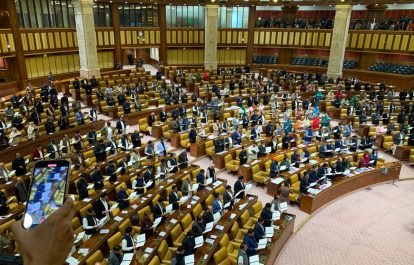The Punjab Provincial Assembly has passed the Punjab Defamation Act of 2024 despite protests from observing journalists and opposition politicians and widespread criticism for its ‘draconian’ provisions. The International Federation of Journalists (IFJ) and its affiliate, the Pakistan Federal Union of Journalists (PFUJ), condemn the bill’s passing, highlight its potential to be weaponised against critics of the governments, and urge provincial and national authorities to uphold press freedom.
On May 20, the Provincial Assembly of the Punjab ratified the Defamation Bill of 2024, dismissing all amendments suggested by both opposition political parties and media stakeholders. Nominally aimed to curb the spread of disinformation across digital, traditional, and social media platforms, the bill has been widely criticised as ‘draconian’ for its severe punishments and potential for abuse.
Under the approved bill, defamation is defined as a civil wrong, and victims can initiate action “without proof of actual damage of loss”. Special tribunals, which would be composed of government-selected members from a Lahore High Court Chief Justice shortlist, would be be obligated to try cases within six months of registration. Notably, in cases of allegations against individuals holding ‘Constitutional Offices’, the high court will hear the cases.
The bill proposes fines of up to PKR 3,000,000, or approximately USD 10,750, with potential ‘punitive damages’ able to extend to ten times that amount. Beyond fines, tribunals would have the power to force offenders to submit an apology, and suspend or block the social media accounts or media platforms through which the content was published.
Only one meeting was held between provincial leadership and media stakeholders, after which the bill was presented and passed without the inclusion of feedback. A Joint Action Committee has vowed to challenge the legislation in the Lahore High Court, identifying vague terms and definitions, harsh fines, and overlapping or duplicated laws as impacting Pakistan’s constitutional commitments to fundamental freedoms. Over 80 civil society organisations have rejected the bill as a ‘gross infringement’ of basic rights, while the Human Rights Commission of Pakistan (HRCP) have expressed grave concerns over the bill.
Two defamation laws already apply in Punjab, namely the Defamation Ordinance of 2002 and the Punjab Defamation Act of 2012. The legislation requires assent from Punjab’s recently elected governor, Sardar Saleem Haider Khan, before coming into law. Sardar has publicly expressed concerns over the law’s lack of consultation and stated he was ‘hopeful that the law will be reviewed again.’
PFUJ President GM Jamali and Secretary General Rana M Azeem both expressed their concern over the legislation, and identified the law as contrary to Pakistan’s constitutional rights of freedom of speech and expression. They said: “The PFUJ completely rejects the defamation law and announce a series of protests at all levels in due course of time. We demand the government to review this bill and take all the stake holders in confidence and contemplate their concerns.”
The IFJ said: “In addition to the issues of job security, personal safety, and illegal dismissals, new laws are being introduced by Punjab authorities to compromise freedom of expression, a right guaranteed by the constitution of Pakistan. This is extremely dangerous for journalists and media workers, and a real threat to press freedom and freedom of information. The IFJ urges both Punjab and national authorities to immediately withdraw this legislation and pursue any further defamation legislation in robust consultation with journalists, media workers, and their unions.”

 IFJ Asia-Pacific
IFJ Asia-Pacific

